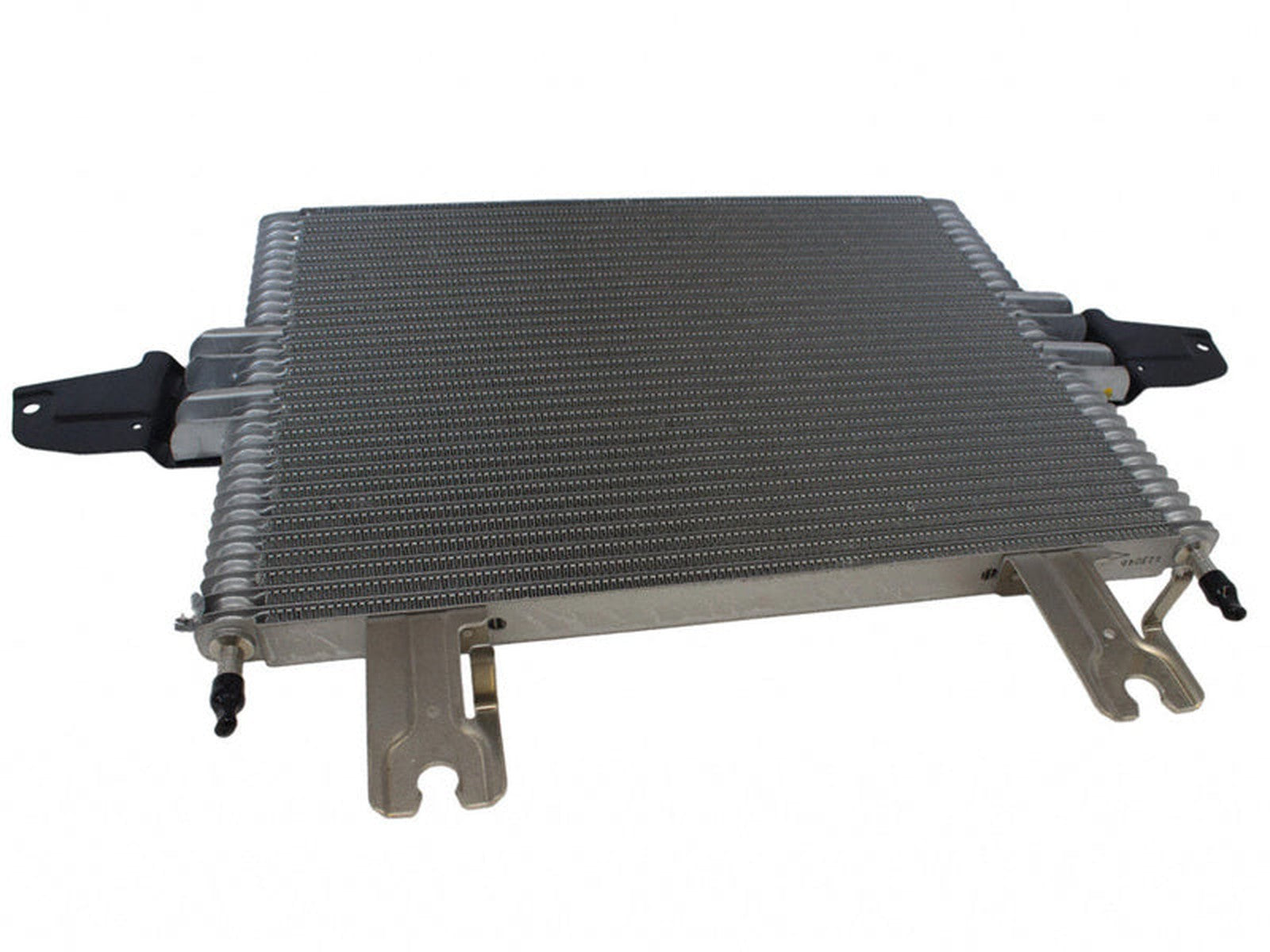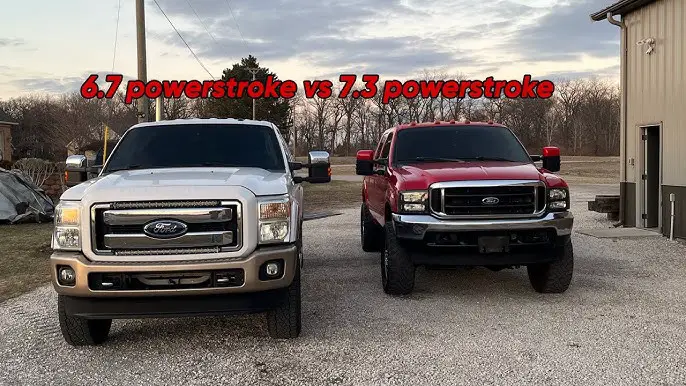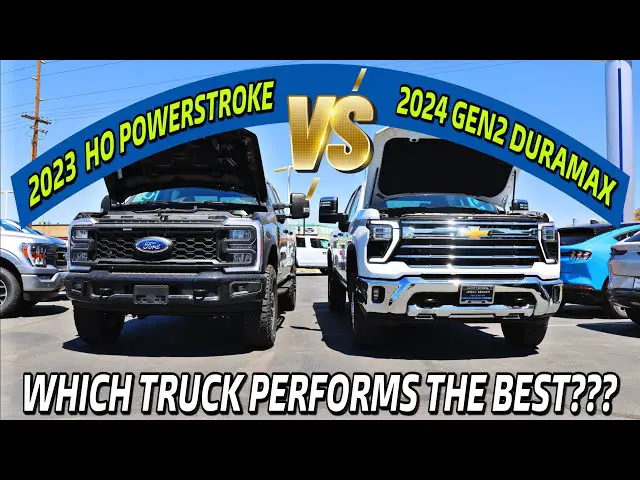Ford V10 Vs 6.0 Powerstroke: Ultimate Engine Showdown
The Ford V10 and the 6.0 Powerstroke are two popular engines. They are often found in Ford trucks. Each engine has its unique features. Understanding these features helps in making the right choice.
Overview of Ford V10
The Ford V10 is a gasoline engine. It is a 6.8-liter engine. It has ten cylinders. This engine offers good power and torque. It is often used in larger Ford trucks. The V10 engine is known for its smooth operation.
Overview of 6.0 Powerstroke
The 6.0 Powerstroke is a diesel engine. It is a 6.0-liter V8 engine. This engine is designed for heavy-duty work. It provides high torque and power. Many people use it for towing and hauling. It is known for its durability.
Key Differences Between the Two Engines
| Feature | Ford V10 | 6.0 Powerstroke |
|---|---|---|
| Type | Gasoline | Diesel |
| Number of Cylinders | 10 | 8 |
| Power Output | 305-362 hp | 325-350 hp |
| Torque | 420-460 lb-ft | 570-650 lb-ft |
| Fuel Efficiency | Good | Better for heavy loads |

Performance Comparison
Power And Torque
The Ford V10 offers solid power. It ranges from 305 to 362 horsepower. The torque ranges from 420 to 460 lb-ft. This makes it good for many truck tasks.
The 6.0 Powerstroke shines in torque. It produces between 570 and 650 lb-ft. This engine is better for heavy towing. It can pull larger loads with ease.
Fuel Efficiency
Fuel efficiency is important for many drivers. The Ford V10 has decent fuel economy. It is good for a gasoline engine. But, it may not be the best for long trips.
The 6.0 Powerstroke uses diesel. Diesel engines often get better fuel efficiency. This can save money over time, especially when towing.
Maintenance and Reliability
Maintenance Of Ford V10
The Ford V10 is easy to maintain. Regular oil changes are necessary. It is also important to check the spark plugs. This engine typically has fewer issues over time.
Maintenance Of 6.0 Powerstroke
The 6.0 Powerstroke requires careful maintenance. It can have some common problems. These include issues with the head gaskets and oil coolers. Regular checks can help avoid big repairs.
Cost Comparison
Cost is a big factor when choosing an engine. The Ford V10 is generally cheaper. It is less expensive to buy and maintain.
The 6.0 Powerstroke can be more costly. Diesel engines tend to cost more upfront. Maintenance can also be higher due to specific needs.
Driving Experience
Driving With Ford V10
The Ford V10 offers a smooth ride. It has good acceleration and handling. Drivers enjoy its responsiveness. It is great for everyday driving.
Driving With 6.0 Powerstroke
The 6.0 Powerstroke provides a different experience. It feels powerful, especially when towing. It has a strong pull. Some drivers prefer its heavy-duty feel.

When to Choose Each Engine
Choosing Ford V10
Choose the Ford V10 if you want:
- A gasoline engine.
- A smooth driving experience.
- Lower initial costs.
- Good performance for daily tasks.
Choosing 6.0 Powerstroke
Choose the 6.0 Powerstroke if you need:
- A diesel engine.
- High torque for towing.
- Better fuel economy for heavy loads.
- A robust, durable engine.
Frequently Asked Questions
What Is The Difference Between Ford V10 And 6.0 Powerstroke?
The Ford V10 is a gasoline engine, while the 6. 0 Powerstroke is a diesel engine. Each has different performance and fuel efficiency.
Which Engine Has Better Fuel Efficiency?
The 6. 0 Powerstroke generally offers better fuel efficiency compared to the Ford V10. Diesel engines are known for this advantage.
Is The Ford V10 More Powerful Than The 6.0 Powerstroke?
Power varies by model, but the Ford V10 typically has higher horsepower. The 6. 0 Powerstroke excels in torque.
What Are Common Problems With The 6.0 Powerstroke?
Common issues include head gasket failures and EGR problems. Regular maintenance can help prevent these.
Conclusion
Both engines have their strengths. The Ford V10 is a great gasoline option. It offers smooth power and ease of maintenance.
The 6.0 Powerstroke excels in torque and towing. It is a solid choice for heavy-duty work. Each engine serves different needs.
Consider your driving habits. Think about what you need from your vehicle. This will help you choose the right engine. Make a choice based on power, maintenance, and cost.



